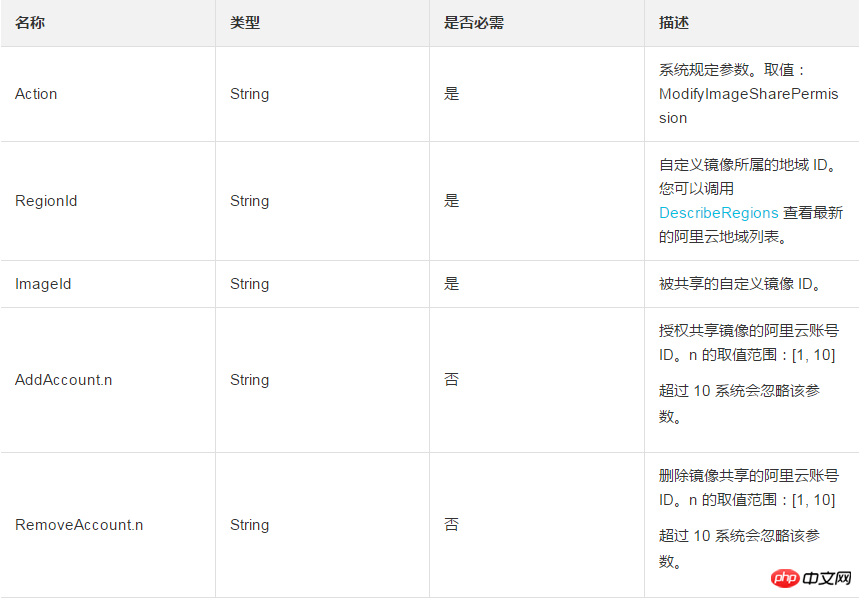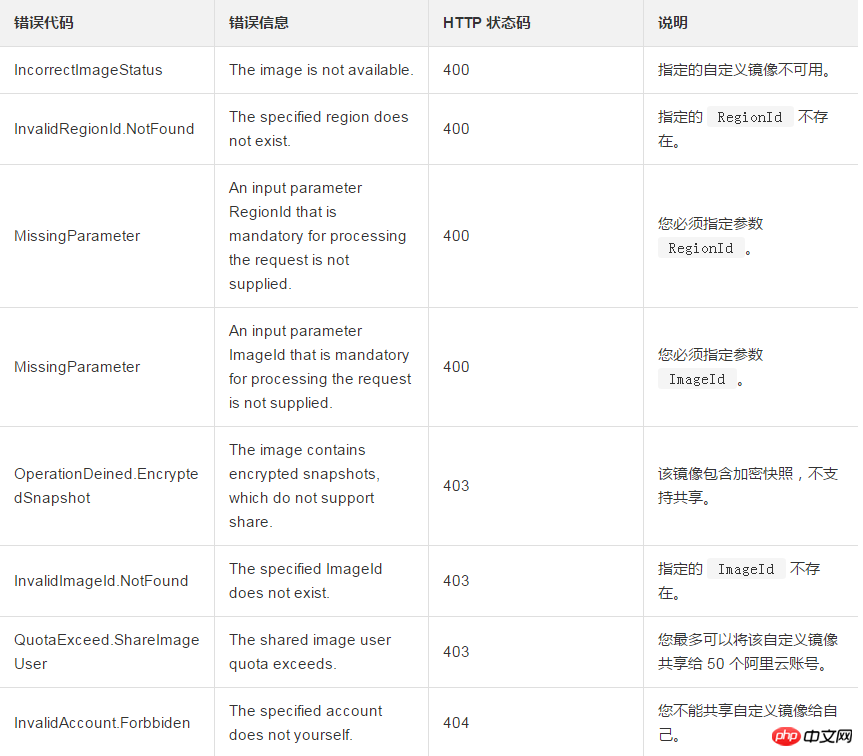
The content of this article is about how to use a shared custom image to create an ECS instance or change the system disk of the instance. It has certain reference value. Friends in need can refer to it. I hope it will be helpful to you. help.
ModifyImageSharePermission
Manage image sharing permissions. You can share your custom image with other Alibaba Cloud users, who can use the shared custom image to create ECS instances (RunInstances) or replace the instance's system disk (ReplaceSystemDisk).
Description
When calling this interface, you need to pay attention:
You can only share your own custom image to Other Alibaba Cloud users.
Each custom image can be shared with up to 10 Alibaba Cloud accounts at a time. Therefore, the parameter AddAccount.n or the parameter RemoveAccount.n can pass in up to 10 Alibaba Cloud accounts at a time. If there are more than 10 accounts, the system will ignore this parameter.
Each custom image can be shared with up to 50 Alibaba Cloud accounts. You can submit a work order to apply for sharing with more users.
After using a shared image to create an ECS instance (RunInstances), once the custom image owner cancels the image sharing relationship or deletes the custom image (DeleteImage), the instance will not be able to initialize the system disk (ReInitDisk).
Request parameters
Return parameters
Full is a public return parameter. See Public Parameters
Example
Request Example
https://ecs.aliyuncs.com/?Action=ModifyImageSharePermission &RegionId=cn-hangzhou &ImageId=m-281234567 &AddAccount.1=23412345234 &<公共请求参数>
Return Example
XML format
<ModifyImageSharePermissionResponse>
<RequestId>C8B26B44-0189-443E-9816-D951F59623A9</RequestId>
</ModifyImageSharePermissionResponse>JSON format
{
"RequestId": "C8B26B44-0189-443E-9816-D951F59623A9"
}Error code
The following are error codes unique to this interface. For more error codes, please visit the API Error Center. 
The above is the detailed content of How to create an ECS instance using a shared custom image or change the system disk of the instance. For more information, please follow other related articles on the PHP Chinese website!